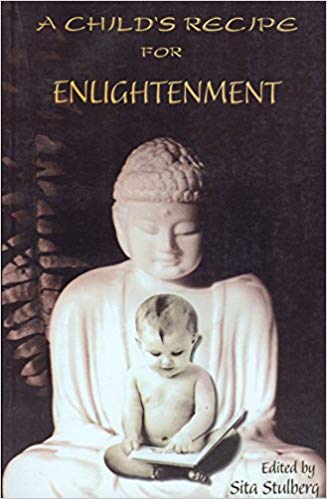Sita Stulberg Interview
Poetry workshop helps students find a voice
By JOSEPHINE WOOLINGTON - Associated Press - Monday, March 17, 2014
EUGENE, Ore. (AP) - Jacob Fitch still remembers it clearly, even three years later.
A couple of classmates in fourth grade told him no one would ever love him because, they said, he was ugly.“No one will ever love me, huh?” Jacob, now a seventh-grader at Madison Middle School, said confidently while he read his poem, “Faces,” to a group of students, parents and school staff during a poetry reading session:
What about my family and friends? I say.
They don’t know what to say back.
Those girls were like bullies
Ignorant
Jacob said he wasn’t too keen on writing until a year ago, when he took a two-week poetry workshop offered to all sixth-graders at his middle school off River Road.
The writing tools he learned from poet and teacher Sita Stulberg allowed him to articulate what he’s learned since that moment in fourth grade so he could share it with others, he said.
Like Jacob, students learn how to write about memories, goals and fears, or tough, emotional experiences, during Stulberg’s classes. One student wrote about watching her grandpa die of lung cancer, while another described welcoming her dad home after he’d been deployed for a year in Iraq.
Stulberg, an unconventional teacher with spirally black hair who loves wolves and cameo pendants, wants to give children a voice through poetry. She doesn’t want the art form to be intimidating or inaccessible.
“It doesn’t have to be in archaic language,” she said.
She teaches students by having them read poems written by previous students, or from contemporary poets such as Maya Angelou and Margaret Atwood.
Stulberg, who’s from Los Angeles, has taught poetry for nearly 30 years at public schools in California and Oregon, including nine years in Eugene. She’s taught at Madison Middle School for the last six years and held a special writing session to help students cope when the school’s beloved social studies teacher, Andy Morgenstern, died suddenly of a heart attack in 2012.
Stulberg published a collection of her students’ poems in 1997 in a book called “A Child’s Recipe for Enlightenment.” She plans to publish another poetry collection soon.
Stulberg has helped children through abuse, murder, illness, divorce and death by teaching them how to express themselves through writing.
The poems reflect how children see things such as school shootings or bullying, she said.
Students also have written about fond memories, such as the birth of a younger sibling.
“And holy cats!” Stulberg said after recalling poems written by previous students about nature and death. “It makes them feel significant.”
Student Elena Barajas wrote from the point of view of a duck, in her poem called “Duck Song.”
The 11-year-old said her grandpa is a hunter and she doesn’t like it when he kills ducks - her favorite animal.
I have feathers
You have skin
We both were born with different things
But we are no different
Except you are ruthless
and I am sweet
Poetry has no rules, Stulberg tells her students. Poems don’t have to make sense, or rhyme.
When students try to rhyme, she said, they think too much.
“We want to be in our hearts instead of our noodle,” Stulberg said, while pointing to her head during a poetry class last week.
Despite budget cuts that have eliminated many arts programs in schools, Madison is able to pay for Stulberg’s classes, which total about $4,000 a year, through grants, student body funds and fundraisers.
The school expects it will find the funds to invite Stulberg back next year, too.
Language arts teacher Anne Glassow said students learn how to write in paragraphs, use proper grammar and explore different types of writing in other classes, but Stulberg’s classes help students relate to writing.
“She gets kids who weren’t excited about school to come and start working,” Glassow said. “She’s got a way to teach kids how to write.”
Stulberg’s poetry also teaches students to be specific with details - “It’s chartreuse, not green” - and challenges them to strengthen their vocabulary.
The classes also help boost self-esteem.
A sixth-grade boy with Asperger’s syndrome, an autism spectrum disorder, wrote a poem about rage in Stulberg’s class.
Rage is dressed in glowing sapphire
like burning coals lit on fire
an evil hideous creature
waiting for us to enter
waiting to enter us
Rage strikes fear into everyone’s golden hearts
destroys things everyone once loved
The boy couldn’t communicate well and lacked self-confidence, Stulberg said.
His mother wrote to Stulberg, saying that because of her son’s disorder, people would often single him out as being different.
“The poetry he writes is now proving him to be unique in a good way,” his mother said.
“The poetry class has given him an outlet of expression that he never knew he had.”

